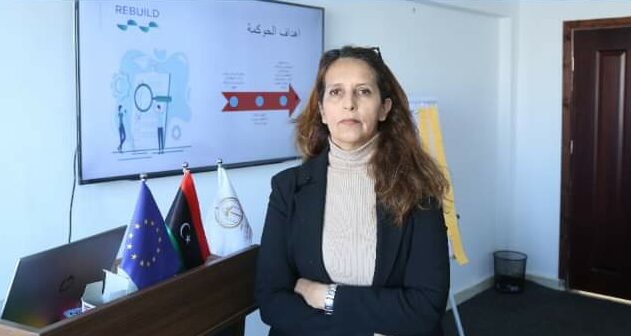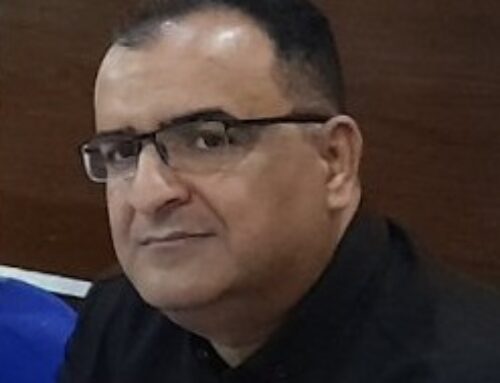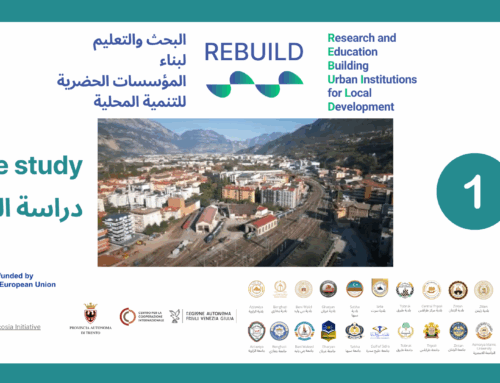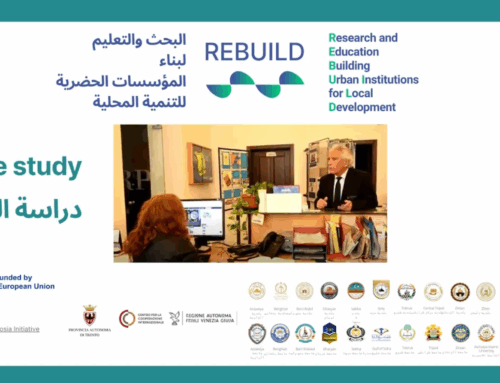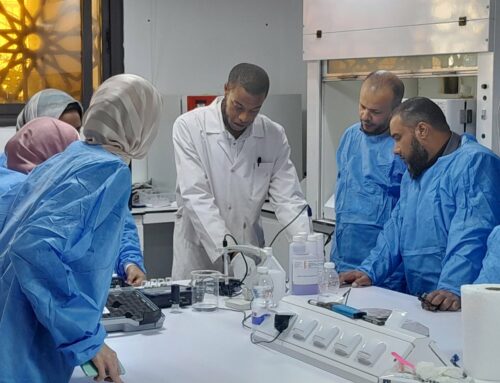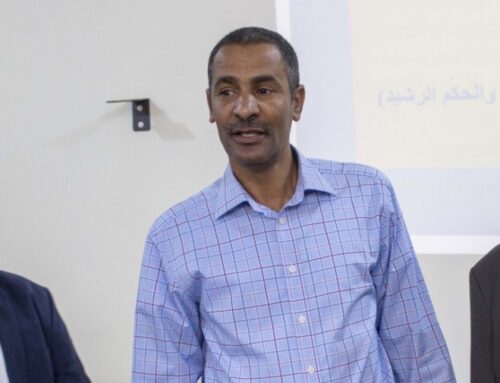Dr. Abeir Imneina, Trainer, University of Benghazi
Universities play an important role in building the capacities of institutions and shaping them in order to serve the local community. They are able to communicate with various departments in order to support them in terms of consultancy and training. These activities contribute to strengthen their role at the local level as well as increasing the service delivery of the institutions.
The REBUILD project provides support in establishing this important link between universities and their community. The project aims at improving local public services in Libya through a continuous training mechanism, provided by Libyan Universities to Municipalities in each area. It contributes as well in raising the level of municipalities’ capacities when designing, monitoring and evaluating local public policies. Another fundamental aspect is that includes the role of citizens’ participation in drawing up of public policies in line with their local priorities.
However, it is important to raise questions about the project’s success in achieving these goals, especially because the project extends to 2025. The first step of the project concerning the training of University professors regarding vital issues of local administration was implemented according to the expectations and plans. The training to Municipal employees was carried out successfully as well.
All Universities, through their trainers, have transferred knowledge and raised the skills of their Municipalities concerning service provision according to the specialization of the participants. Nevertheless, there is a lack of tracking in terms of training outputs and impact on the performances of the Municipalities. The process of measuring and evaluating the transfer of competences is absent. In order to reach the expected objective of the training, to which extent did the participants integrate the learnings of the training into their daily work in the Municipality? In addition, to what extent governance standards in local authorities have been revised? How participatory democracy was promoted? Were specific actions taken linked to the attended training?
For this reason, I consider that there is a lack of criteria in terms of monitoring and evaluation. The sustainability of the project requires the establishment of clear criteria and a monitoring follow-up.
The Project Coordinator in the Municipality could organize a session between the Municipality itself and its citizens in order to promote the principle of participatory democracy and the role of citizens in the local development of everyday issues of the city. This would be an important indicator of the project’s success. In addition the Municipality should inform about its activities and public the necessary information on its communication pages in order to enhance the principles of transparency and accountability.
Regarding the training to Municipality staff, it has to be observed that it is difficult to target the correct people for several reasons: it is difficult to request all department managers to leave their roles at the same time to attend an entire-week training. This would disrupt the entire Municipality activity. In this regard, it is suggested to organize the sessions only in the evening in order to ensure the attendance of everyone during the whole training. It is worth mentioning that not only Municipal are targeted to attend training, some representatives of various ministries and other agencies attended as well.
In terms of training of trainers for University professors, which represents the first component of the project’s training, it is necessary to highlight the scarce representation of female participants. The percentage of participation of women in the in-presence training of September 2022 was 10%, which does not comply with the principle of equal access. Concerning this point, we suggest to request a higher number of women as University representatives, especially because their number is increasing in various scientific sectors.
The project may face the problem of carrying the financial burden of people accompanying women in the training. However this is worthy because it would be in line with the principle of equality in accessing these training activities.
Finally, it’s a wonderful experience at a personal level. We hope that the next training cycle will focus on how to develop a guide for public policies. We hope that only people working in policy development departments at the Municipality level would be trained. The trainers, including university professors, should accompany the municipalities always as a matter of consultation, even for free.
—
Read the other articles of the third newsletter:
1. The High Seas Coast Fishing Unit Owners Association and the REBUILD project – Mr Muftah Ahmadi, Mayor of Zliten
2. Message from Tiziana Bresciani, REBUILD project manager
4. The first mission to Libya, for the implementation of the Pilot Action on Fisheries – Leonardo Manzari, Senior International Expert, OGS- National Institute of Oceanography and Applied Geophysics, REBUILD project
5. Why TOT matters? – Abdullah Bataineh, Expert of local development and capacity building, International Cooperation Centre

